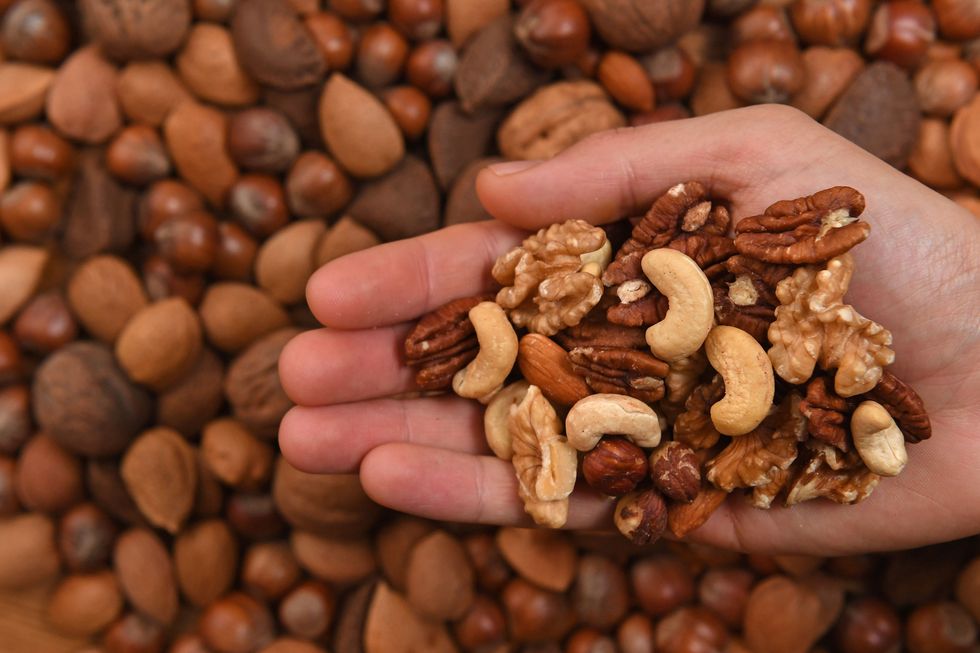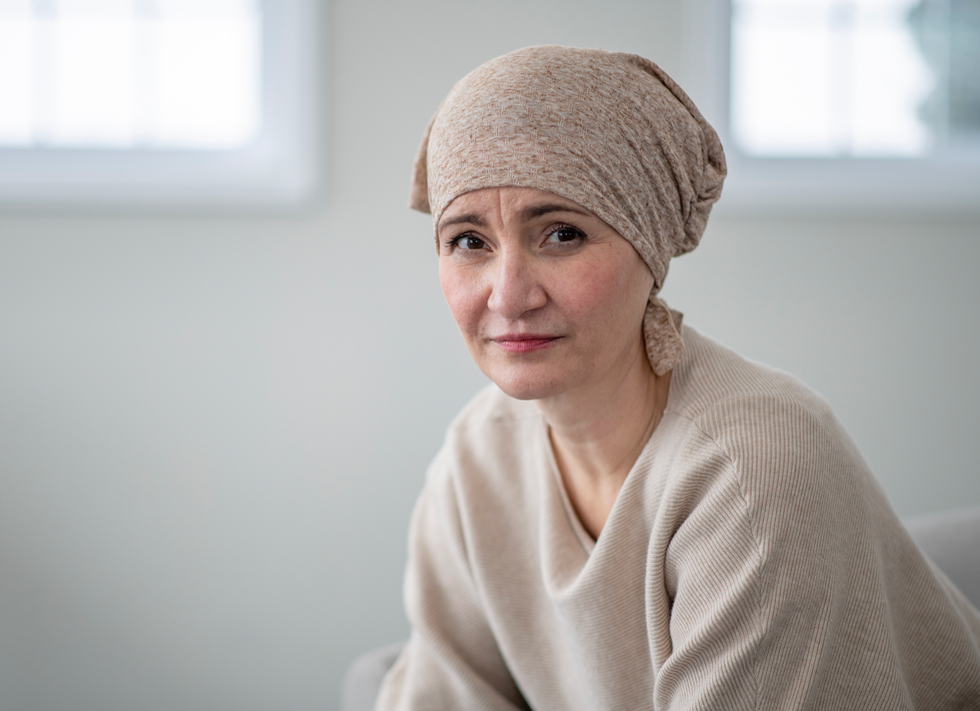'Completely different world': Groundbreaking study finds popular nut could hold the key to stopping cancer

Limiting the antioxidant effects of selenium may be crucial in controlling an aggressive form of breast cancer, research suggests
Don't Miss
Most Read
A groundbreaking study has revealed that denying cancer cells a key ingredient found in Brazil nuts could potentially halt the spread of triple-negative breast cancer.
Triple-negative breast cancer is type of breast cancer that's more aggressive than other breast cancers and has a worse prognosis.
Research funded by Cancer Research UK and published in EMBO Molecular Medicine suggests that limiting the antioxidant effects of selenium may be crucial in controlling this aggressive form of the disease.
Selenium, an essential mineral abundant in foods such as meat, mushrooms, and cereals, is also a popular component of multivitamin supplements.
Whilst previously thought to be beneficial in fighting cancer cells, the study found that triple-negative breast cancer cells actually rely heavily on selenium, particularly when they are sparse and moving to other parts of the body. This discovery has raised hopes for the development of new treatments that could prevent the spread of this challenging cancer type.

Triple-negative breast cancer cells rely heavily on selenium, the researchers found
| PAThe researchers at the Cancer Research UK Scotland Institute in Glasgow conducted their study by examining the behaviour of triple-negative breast cancer cells.
They found that when these cells are clustered together, they produce a type of fat molecule containing oleic acid, which protects them from cell death caused by selenium starvation.
However, when the cancer cells are sparse or circulating in the blood, they become vulnerable without selenium.
The team interfered with the selenium metabolism in these isolated cancer cells, successfully killing them, particularly those seeking to spread to the lungs.
This discovery sheds light on the complex relationship between selenium and cancer cell survival.
In a nutshell
Doctor Saverio Tardito, the research lead, emphasised that while selenium is essential for human survival, finding a treatment to interfere with its uptake by cancer cells could potentially prevent the spread of triple-negative breast cancer.
The study's findings challenge the previously held assumption that selenium, as an antioxidant, was beneficial in fighting cancer.
Instead, it revealed that triple-negative breast cancer cells heavily rely on selenium for survival, especially when they are isolated.
When these cancer cells are not clustered together, such as when moving to other parts of the body, they become vulnerable without selenium.
The researchers discovered that interfering with selenium metabolism in sparse cancer cells could effectively kill them, particularly those circulating in the blood and seeking to spread to the lungs.
This breakthrough offers a potential new approach to preventing the spread of triple-negative breast cancer, which is often difficult to treat once it has metastasised.
Doctor Sam Godfrey, Cancer Research UK Science Engagement Lead, highlighted the significance of this research, stating that it "could be the key to preventing this type of cancer spreading, and that would have a transformative effect on how this disease is treated".
LATEST HEALTH DEVELOPMENTS

The breakthrough offers a potential new approach to preventing the spread of triple-negative breast cancer
| Getty ImagesThe research offers hope for the estimated 15 per cent of breast cancer patients diagnosed with triple-negative breast cancer in the UK.
Lisa Bancroft, from Dunfermline, who underwent preventative surgery due to a genetic fault, welcomed the research.
She said: "Research like this, which potentially gives people with triple-negative breast cancer more treatment options, offers so much hope.
"Medical science is making huge leaps forward. For me, the research that uncovered the potentially catastrophic implications of carrying a faulty BRCA gene all those years ago, has changed the course of my life."
The finding is profoundly personal for Ms Bancrofts as her father died from cancer, and her aunt died from triple-negative breast cancer.
At the time of her surgery, her then-two-year-old daughter weighed heavily on her mind.
She said: "When she is old enough, my daughter Emma will also have to decide whether to go for genetic testing to find out if she is affected. Medical science is advancing so quickly, so my hope is that by the time this happens, it will be a completely different world."










